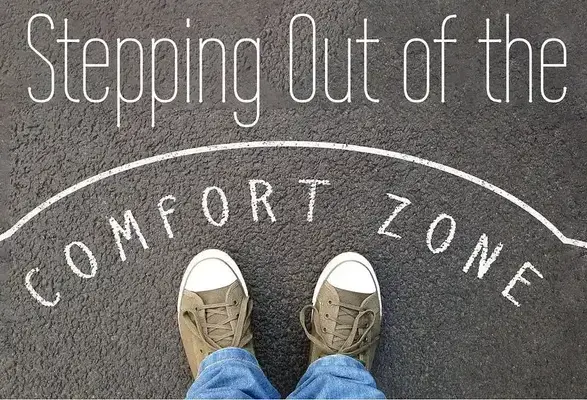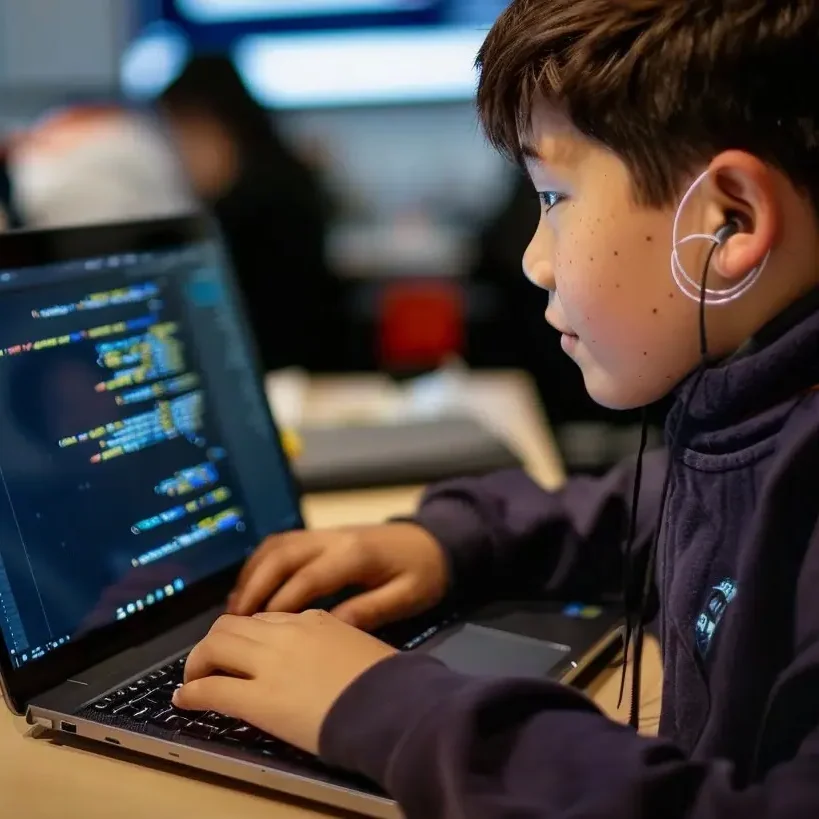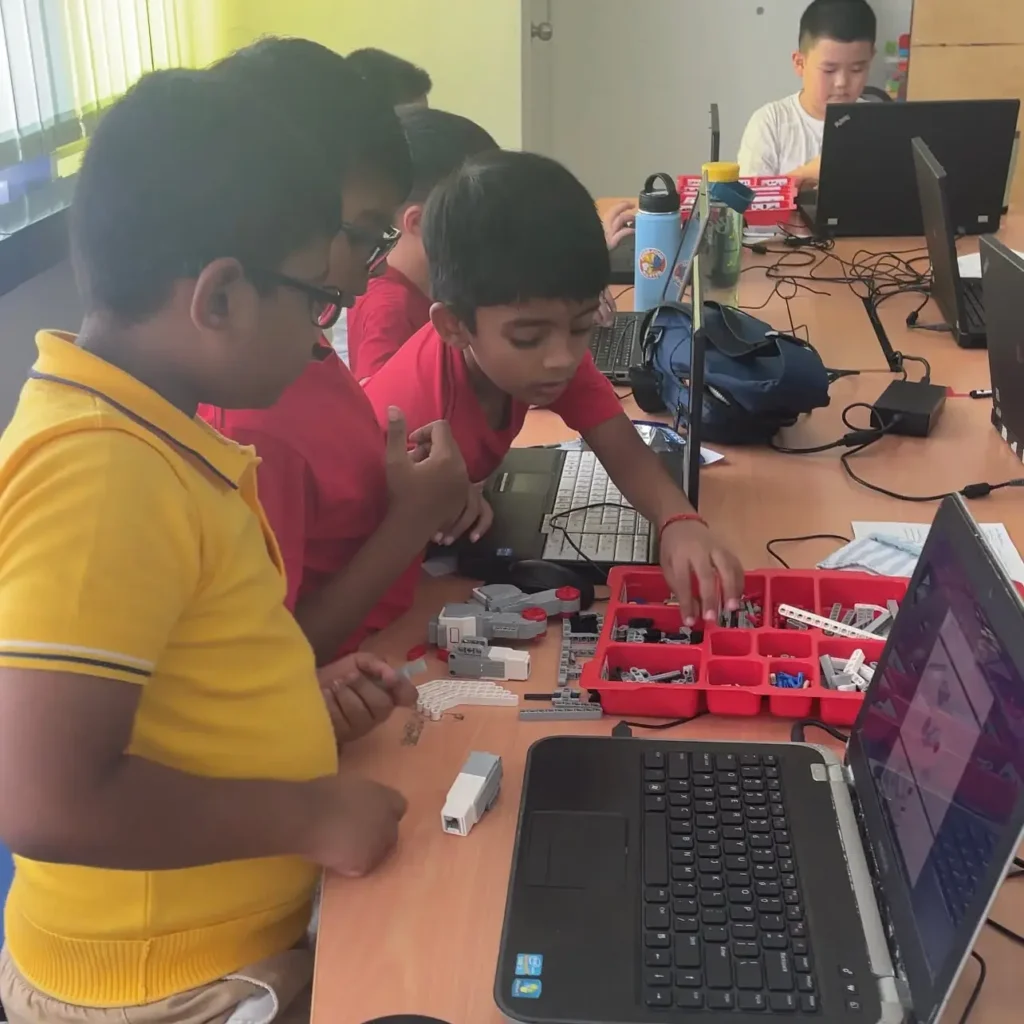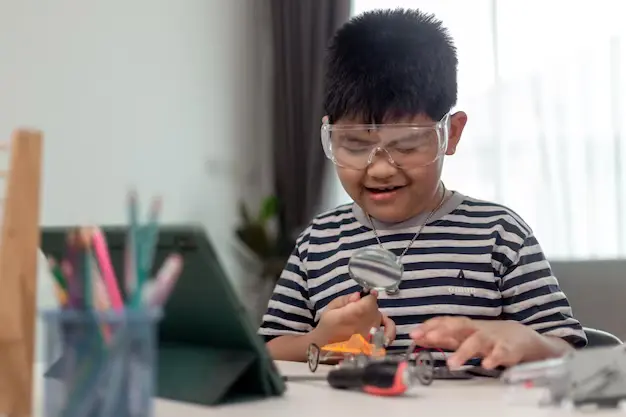Have you ever watched your child hesitate before trying something new — like signing up for a kids competition — and thought, “What if it’s too stressful for them?”
You’re not alone. Many parents worry that competitions might overwhelm their kids or make them feel “less than.” But as someone who’s been training kids in robotics and coding for years, I’ve seen the exact opposite happen.
When kids competition is introduced in the right way, it becomes one of the best tools to build a child’s confidence, resilience, and sense of identity. I’ve watched shy, quiet kids blossom into problem-solvers and team leaders — all because they took part in one simple contest.
Let me share why kids competition events can be such powerful confidence builders — and how you, as a parent, can make it a positive experience for your child.
How Kids Competition Turns Shy Children Into Brave, Confident Leaders

Stepping Out of the Comfort Zone
One of the biggest transformations I see happens the moment a student signs up for their first kids competition.
I remember a student quiet, reserved, always sitting at the back of the classroom. He loved building robots but rarely shared his ideas aloud. When our academy announced a robotics kids competition, he hesitated. His mom told me, “He’s too shy for that kind of thing.” But with a little encouragement, he joined.
Fast forward a few weeks, there he was, confidently explaining his team’s project to judges and visitors. You could see the pride in his eyes.
Competitions do that. They nudge kids out of their comfort zones. And when they realize they can handle the pressure, speak up, or fix something in front of others, their belief in themselves skyrockets.
Confidence isn’t built from comfort. It’s built from courageous little moments like that.
And when they meet stronger teams or older students in a kids competition, that experience can be even more powerful. Facing tougher opponents pushes kids to rise to the challenge, and even if they don’t win, the experience of holding their ground gives them a huge self-confidence boost.
If your child is shy or hesitant, you may also want to read Is Your Child Shy? Discover How Coding Can Help Shy Child Communicate Better!

Learning to Handle Pressure and Setbacks
Let’s be honest. Kids competition days can be nerve-wracking. Things go wrong, code stops working, batteries die at the worst possible time. (Every robotics trainer knows this pain!)
But here’s the beautiful part: kids learn how to stay calm, think on their feet, and bounce back.
Once, during a national robotics event, one of the biggest kids competitions of the year, one of our teams had their robot completely freeze mid-competition. You could see panic in their faces. I told them, “You have five minutes, what can you fix right now?” They regrouped, tested a quick solution, and by some miracle, their robot moved again, just enough to finish the round.
They didn’t win that day. But you should’ve seen their excitement afterward. “We fixed it! We didn’t give up!” one of them said, beaming.
That’s the heart of confidence, not being perfect, but learning that setbacks are temporary and solvable.
A kids competition also teaches resilience and adaptability. Kids learn to handle pressure, make adjustments, and recover from failure without falling apart. They realize they can stay calm under stress. And that knowledge follows them into exams, sports, and life.
This connects closely with How Coding Can Enhance Problem-Solving Skills in Kids because competitions act as a real-life extension of those problem-solving lessons.
In a way, competitions are the perfect low-stakes environment for kids to experience pressure safely, to feel nervous, make mistakes, and still perform well. That realization builds lasting confidence.

Discovering Strengths They Never Knew They Had
A kids competition can reveal strengths that kids (and sometimes parents) didn’t know existed.
Some children turn out to be brilliant presenters, explaining their projects passionately to the judges. Others shine in leadership or creative problem-solving, roles they might never take in a regular classroom setting.
For example, one of my students thought she wasn’t “good at coding.” But during a robotics kids competition, she came up with an innovative way to decorate the robot’s design and explain its function to the judges. Her communication skills earned the team extra points and she realized she had a talent for creative presentation.
From that day, she became the team’s spokesperson in every competition. Her confidence grew with each event, not because she was the best coder, but because she discovered her own kind of brilliance.
Competitions also help kids learn their capabilities, how strong, clever, and determined they truly are when they focus. Once they see what they can endure and achieve, their self-belief becomes unshakable.
If you’re exploring ways to help your child uncover hidden strengths, you might also enjoy How to Improve a Child’s Creativity through Coding and Robotics.

Building Teamwork and Communication Skills
If your child joins a team-based kids competition like robotics, teamwork becomes one of the best teachers.
Kids quickly learn that it’s not just about “my part”, it’s about how everyone’s work fits together. They practice sharing ideas, listening, and negotiating (sometimes with a bit of drama along the way!).
One of my favorite moments is when a team finally learns to collaborate instead of compete within themselves. You see them high-fiving after solving a problem or comforting each other after a mistake.
It’s a reminder that confidence doesn’t grow only from individual success, it also grows from belonging.
A kids competition also improves social skills. Kids learn to communicate under pressure, resolve conflicts, and understand different perspectives. And when they’re encouraged to make their own decisions about strategy or design, they build independence, a quiet kind of confidence that says, “I can handle this.”
And let’s not forget good sportsmanship, one of the most underrated lessons. Healthy kids competition teaches children to celebrate others’ successes, show respect for opponents, and realize that competitors are actually partners in growth.
For kids who struggle socially, this pairs well with How Coding Can Help Shy Child Communicate Better.

Motivation to Keep Improving
Another amazing thing about kids competition events? They light a spark of motivation that goes far beyond the event itself.
After every robotics kids competition, I notice a pattern, kids who once needed reminders to do their projects suddenly become self-driven. They start researching new coding languages, improving their designs, or even mentoring younger students.
Why? Because they’ve seen what’s possible.
They’ve experienced that adrenaline rush of solving something difficult and want to feel it again.
Through preparation, kids develop a strong work ethic. They learn that success comes from practice, not luck.
This is also why competitions pair beautifully with 8 Surprising Benefits of Coding Competitions for Kids if you want to dive deeper into the long-term impacts.
A kids competition also teaches them to focus on what they can control, their preparation, teamwork, and creativity, rather than comparing themselves to others.
And because every challenge brings visible progress, kids feel motivated to keep improving, experimenting, and pushing their creativity further. That’s how competition turns learning into a lifelong habit.

The Joy of Achievement — Big or Small
Sometimes, it’s not about trophies. It’s about those little “I did it!” moments that no one else might even notice.
I remember a team that didn’t win anything officially, but their parents told me afterward, “My son came home so proud. He couldn’t stop talking about how he fixed that bug right before the timer ended.”
Those tiny victories matter.
A kids competition gives children countless opportunities to experience achievement on their own terms. Even completing a small goal or finishing a round successfully counts as a win.
When kids experience the joy of completing something challenging, they internalize this message: “I’m capable.”
And when parents and teachers recognize their effort, not just the outcome, it reinforces a powerful message: effort equals growth.
This ties nicely with 6 Benefits of A Reward System for Children because both reinforce intrinsic motivation.
How Parents Can Support Without Pressure
Now, here’s where moms and dads play a big role.
Your support and mindset during a competition can make all the difference. Here are a few meaningful ways to help your child grow through it — without adding pressure:
1. Focus on effort, not results.
Celebrate how hard they worked, how they solved problems, and how they handled challenges.
A simple, “I’m proud of how you didn’t give up,” means far more than, “Did you win?”
This helps your child understand that success comes from effort, not perfection.
2. Keep the atmosphere light.
Remind them that competitions are meant to be fun and full of learning — not a test of their worth.
Sometimes I tell my students, “Even NASA has bugs in their code — and they’re launching rockets!”
Kids love hearing that even the smartest people make mistakes.
3. Encourage reflection afterward.
After the event, ask questions like:
- “What did you enjoy the most?”
- “Which part was challenging but fun?”
- “What would you like to try differently next time?”
This builds a strong growth mindset, where improvement feels exciting rather than intimidating.
4. Celebrate small wins.
Maybe it’s a pizza night, a “high-five session,” or simply sitting and listening as they proudly retell every moment of the competition.
These small celebrations reinforce a powerful message:
What matters is the effort, the courage, and the progress — not just the trophy.
At our academy, we also encourage this through our reward system.
When students participate in competitions, they don’t just receive the official prizes — they also earn AdCoins, a special reward that works like real money. Kids can use their AdCoins to buy actual items, which makes their effort feel truly valued and meaningful.
It’s a fun, motivating way to celebrate participation, improvement, and hard work… not just victory.
Confidence Is Built, Not Born
Every child starts somewhere. Maybe they’re nervous, quiet, or unsure at first. But with each kids competition, with every challenge faced and every lesson learned, their confidence grows stronger and steadier.
I’ve seen kids go from trembling before judges to proudly presenting projects to hundreds of people. I’ve seen tears turn into smiles, and “I can’t do this” transform into “When’s the next competition?”
That’s the magic of a kids competition. It’s not about winning. It’s about becoming.
So if you’re wondering whether your child should join that coding or robotics kids competition?My answer is yes. Let them try. Let them grow. Let them surprise you.
You might just discover a new spark of confidence in them. One that shines brighter with every challenge they face.